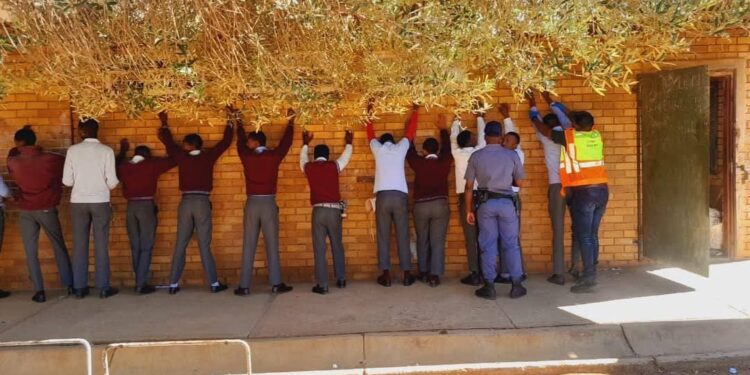MPUMALANGA – The Mpumalanga Department of Community Safety, Security and Liaison’s School Safety Programme has sparked heated debates among parents and community members in Balfour, Mpumalanga.
The programme, which aims to address crime and promote safety in schools, has been criticised for its method of implementation and for unfairly targeting black learners.
During a recent visit to Isifisosethu and Setsheng Secondary Schools in Dipaleseng Municipality, police units conducted searches and inspections, and two learners at Setsheng Secondary School were found in possession of dagga.
While the department cited this as evidence of the need for continued safety interventions, many parents and community members argue that the programme overlooks deeper societal issues rooted in South Africa’s apartheid past.
The programme’s critics argue that it criminalises black learners rather than addressing systemic issues of inequality and neglect. “This programme is not solving the root problems in our schools. Instead, it feels like our children are being criminalised rather than supported,” said one concerned parent.
Many parents also argue that focusing on safety overlooks the challenges that black learners face daily, including overcrowded classrooms, lack of proper facilities, and limited access to psychological and emotional support.
The programme has also been criticised for its method of implementation, with learners describing the searches as invasive and humiliating. “I felt like a criminal,” said a Grade 10 learner at Setsheng Secondary School. “They made us empty our bags in front of everyone. I understand they are trying to stop crime, but it’s embarrassing, and it doesn’t feel like they care about us.”
The Mpumalanga Department of Community Safety, Security and Liaison defended the programme, emphasising its importance in curbing school-based crime. However, for many, the initiative raises uncomfortable questions about systemic inequality and the stigmatisation of black learners. Parents are calling for a more holistic approach to school safety, one that prioritises investment in education, mental health services, and community support alongside crime prevention efforts.
























